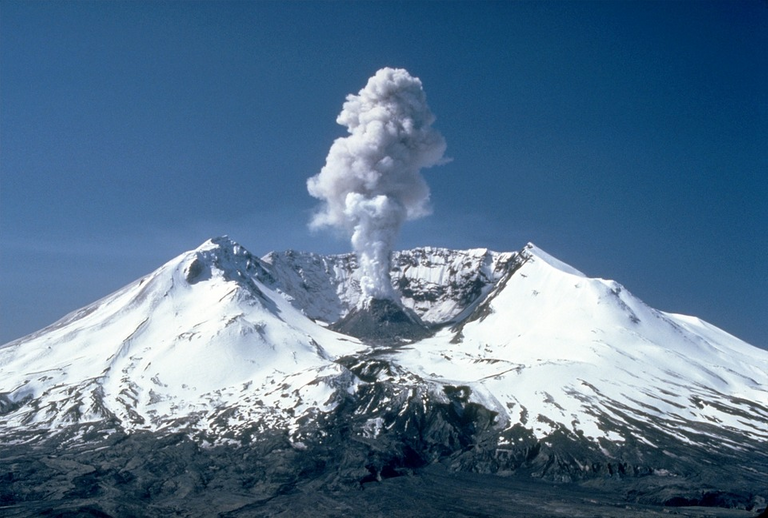Curating the Internet: Science and technology micro-summaries for August 1, 2019
Better predictions for volcanic eruptions; A binary black-hole merger may fuel an astronomical milestone; AI shows the potential to save lives by predicting kidney failure; The 30 year old sensitivity conjecture has been solved in just 2 pages; Why airplanes cannot fly in space
Straight from my RSS feed:
Links and micro-summaries from my 1000+ daily headlines. I filter them so you don't have to.
- Scientists have figured out how to better predict where and when volcanoes will erupt — and their models accurately pinpointed disasters of the past - A new study in the journal, Science Advances reports on a modeling effort by a team of scientists. The scientists report that magma has an easier time traveling through rocks that are more stretched out than others nearby, and that exit paths are often "single use". Using this insight, they accurately modeled known behavior of vents near Italy's Campi Fleigrei, in an area known as the "burning fields". They're hoping to use this modeling technique to save lives near volcanoes like Italy's Mt. Etna, and even the Yellowstone super-volcano.
- Has LIGO Just Detected The 'Trifecta' Signal That All Astronomers Have Been Hoping For? - There are three ways to measure the occurrence of cataclysmic events in the far-off Universe: light, particles, and gravitational waves. Astronomers have been hoping to observe a single event using all three methods at the same time, and they may have their opportunity with an event that happened on July 28. The Laser Interferometer Gravitational-Wave Observatory (LIGO) has observed an event about 2.87 light years away that registers as a binary black hole merger, with 95% confidence. At the same time, the the IceCube neutrino detector registered an event at about the same time and place. So now, scientists are scrutinizing the data to validate the observations and find an electromagnetic counterpart. If a find is made, it will mark a milestone for astronomical observations. h/t RealClear Science
- AI Can Predict Kidney Failure Days in Advance - Acute Kidney Injury is a leading cause of death in hospitals because it happens quickly and it can have many causes, so Google turned their DeepMind AI loose on the problem of predicting it. After training on more than 700,000 electronic health records, the AI can identify individuals who are at risk of renal failure due to AKI. In theory, this could give doctors and hospitals the advance notice they need to be able to save patients' lives. However, the technique currently produces many false positives, and the training data suffered from a dearth of women's health records, so the technique will probably not be ready for hospitals in the real world any time soon. The researchers report that the technique can also be applied to other causes of death like liver failure, sepsis, or complications from diabetes.
- Decades-Old Computer Science Conjecture Solved in Two Pages - The so-called sensitivity conjecture has been an open problem since 1989, despite efforts to prove it by a wide field of discrete mathematicians and computer scientists. Now, Hao Huang has solved it in an elegant two page proof. Without going too deeply into math jargon, the conjecture relates to the upper boundary of the effect on output after flipping input bits for a function mapping binary strings to other binary strings.
- STEEM Flying An Aeroplane Into Space May Be Possible In The Future, But Not Now - Let's Find Out Why - According to @samminator, The Karman Line is located at 100km above sea level. It is the line that delineates the Earth's atmosphere from space. Above this line, the atmosphere becomes too thin for plains to achieve lift in their wings, and there is not enough oxygen to power combustion in the plane's engines. Further, even the fastest jet planes can only achieve about 1/10 of the speed known as "escape velocity". In contrast, rocket powered prototypes are on the drawing board which may be able to operate above and below the Karman Line. (A beneficiary setting of 5% for @samminator has been applied to this post.)
In order to help make Steem the go to place for timely information on diverse topics, I invite you to discuss any of these links in the comments and/or your own response post.
My other open posts
@remlaps
@remlaps-lite
- Curating the Internet: Science and technology micro-summaries for July 30, 2019
- Curating the Internet: Science and technology micro-summaries for July 29, 2019
- Curating the Internet: Science and technology micro-summaries for July 28, 2019
- Curating the Internet: Science and technology micro-summaries for July 27, 2019
- Curating the Internet: Science and technology micro-summaries for July 26, 2019
- My Actifit Report Card: July 25 2019
About this series
Note: Sharing a link does not imply endorsement or agreement, and I receive no incentives for sharing from any of the content producers.
Follow on steem: @remlaps-lite, @remlaps
If you are not on Steem yet, you can follow through RSS: remlaps-lite, remlaps.
Thanks to SteemRSS from philipkoon, doriitamar, and torrey.blog for the Steem RSS feeds!
0
0
0.000

Congratulations @remlaps-lite! You have completed the following achievement on the Steem blockchain and have been rewarded with new badge(s) :
You can view your badges on your Steem Board and compare to others on the Steem Ranking
If you no longer want to receive notifications, reply to this comment with the word
STOPTo support your work, I also upvoted your post!
Vote for @Steemitboard as a witness to get one more award and increased upvotes!
Technology is good.